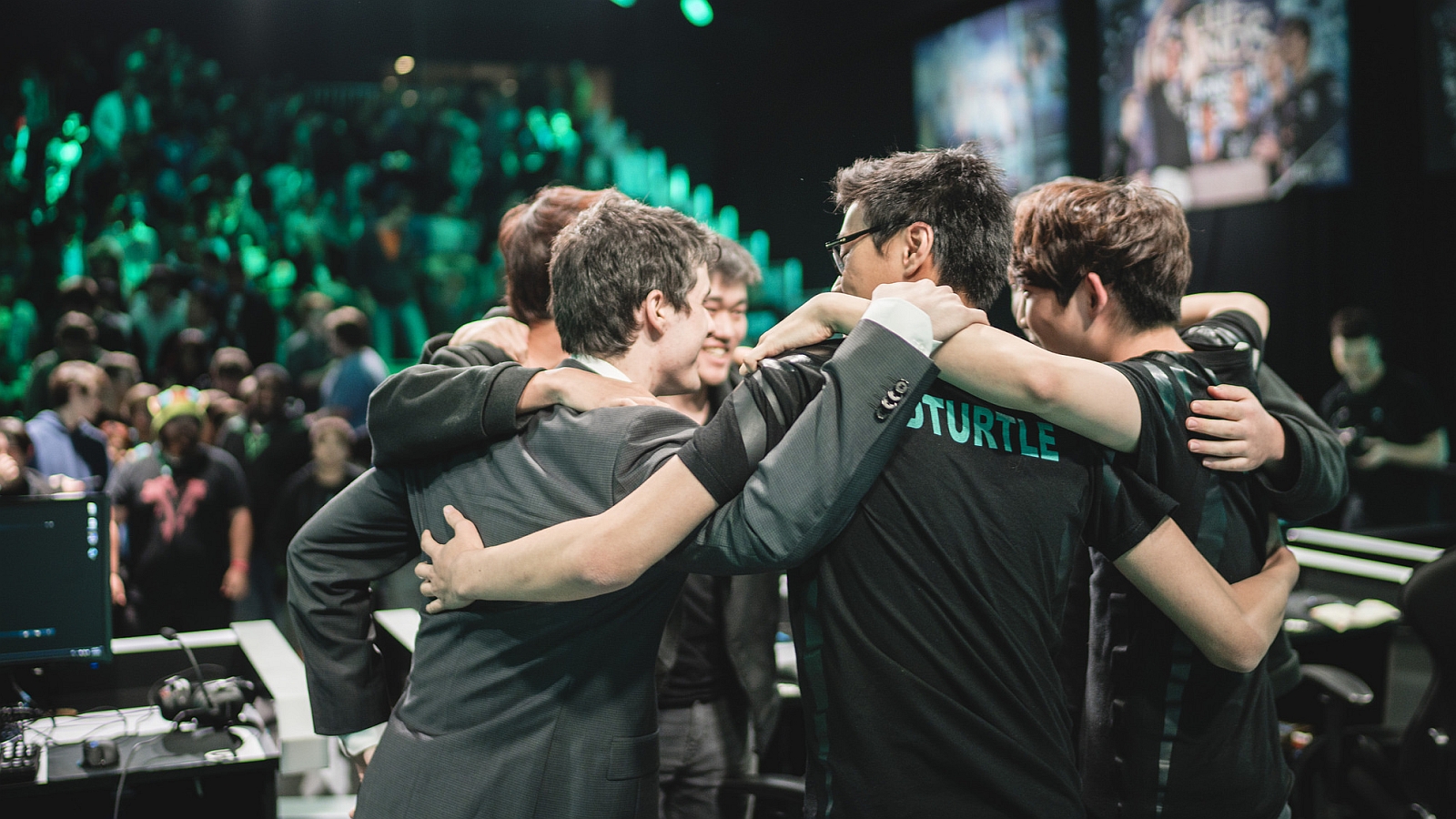Two ways to interpret LoL’s mid-split results

It's week four of the competitive season, which marks, roughly, the group stage’s mid point. The leaders and losers of each of the competitive circuits are now established in their respective roles—and there have definitely been some clear beneficiaries of the new season's changes. Undefeated streaks exist in four out of five of the premier circuits, with no sign as yet that their erstwhile local rivals can stop them anytime soon.
Yet beyond the superficial details—who's winning, who's undefeated, and so on—it's hard to form an accurate assessment of the teams. The lack of international contests doesn't help—there's no way to get a broader context of each team's relative merits without it, and the Mid-Season Invitational is months away (not to mention that nothing about its format or scheduling has been announced). Nonetheless, there's both an optimistic and pessimistic way to interpret even the most impressive current winstreaks based on the matchups they've played, the relative strength of their scene, and even the players they've fielded.
In North America
Take, for instance, the renewal of the Huni & Reignover Show, moved over to the North America channel of the LCS. The second season has a nice twist on the first: in order to preserve the drama, Huni & Reignover are now teamed with a full staff of roster rejects—players and personalities that didn't work out for whatever reason on other more established teams. It's the classic, all-American underdog story of the under-appreciated or unnoticed making it big against the odds!
Does that make the Immortals an international contender? Not so fast.
There's no doubt that the Immortals are North America's number one team. Their games are often a show of total dominance—a huge vindication for the likes of ex-CLG Pobelter, ex-TSM WildTurtle and ex-Impulse Adrian. WildTurtle, in particular, hasn't looked this good since the pentakill that started his TSM career. The fans he lost over the course of the last year, when his performance dwindled and TSM's hopes for a decent Worlds showing evaporated, have all come flooding back.
Does that make the Immortals an international contender? Not so fast. Their prestige is measured against a pretty poor run of contenders thus far, a consequence of the slate of visa problems afflicting the western scene. To their credit, their win against NRG was definitive—but it was also the only game that actually mattered. The less said about Renegades and Echo Fox, the kinder; C9 fielded the ironically unlucky Bunny FuFuu versus them instead of Hai; TSM is in its worst form since pretty much ever.
Sure, it's entertaining to see a competent team steamroll through the opposition. But IMT fans take care—when you look at the details and discern the meat and bones of IMT's success, it begs the question of how much of it is genuinely the outcome of genius and hard work, and how much of it is because they've been hand-fed weak opposition.
Keep up to date with the most important stories and the best deals, as picked by the PC Gamer team.
The obvious joke here is that "weak opposition" constitutes all of NA, but that isn't entirely fair. Not only do they get a rematch against NRG in a few weeks, but they still have yet to face CLG (something that Pobelter might be looking forward to, given that he lost a starting position with them to Huhi). Reignover's also yet to be tested by Liquid's Dardoch, one of the most impressive rookie LCS players of this split.
In Taiwan
Speaking of vindication: Chawy on AHQ is everything that Chawy fans wanted for him. A secure position on a good team, nobody's dragging him down and wasting his in-game efforts, an endless streak of victories... the fact that he has to share the mid lane spotlight with Westdoor was a bit unexpected, coming into the spring split, but it's worked out nicely. With Westdoor on blue side games only, the team ducks around the issues caused by his lackluster champion pool with first pick priority and flex pick options. With Chawy on red side, they can put anything into his hands and make it work.
And so far, that's exactly how it's gone. AHQ's undefeated in four out of four best-of-two sets. The closest they've gotten to a scare is having Chawy's Kassadin get camped—a bad time for him, maybe, but the pressure lifted from AN and Albis basically made it a bot lane game from that point on. And unlike the NA LCS, the LoL Master Series isn't lacking for contenders—Machi, Taipei Assassins, Hong Kong Esports and Flash Wolves have all been showing off some serious stunts in their most recent games.
But all of them lie deep under AHQ's great shadow. The LMS is currently a struggle for silver.
You'd think that would make me happy, that my personal favorite team is doing so well domestically. But the totality of their dominance is suspect for the same reasons as the Immortals: a total lack of struggle means that it's impossible to actually isolate the team's weaknesses. Confounding the issue: AHQ's mid laner setup is deliberately designed to further obfuscate weaknesses. But a lot of their pick-ban strategies, and the way that having two specialists interact with it, are dependent upon a deep understanding of how the enemy team will approach the options given. In other words: it's a setup that works great within the Taiwanese meta, but not necessarily elsewhere.
That makes for an extremely well-defined metagame without a whole lot of ambiguities or complexities to account for.
In prior international tournaments, the Taiwanese teams have been accused of having weak pick-ban strategies, often giving up power picks to teams they should have had a handle on. There's truth behind that—most teams were too poor to have the analysts to do deep research and optimize the overall pick-ban process (an artifact of Taiwan being the poorest of the premier regions by a long shot—most players can only wish for H2K's infamous "5.5 effing k"). The teams that could afford them only had to focus their efforts on each other—basically, only AHQ and TPA for the longest time, then adding Flash Wolves and HK Esports since last year.
That makes for an extremely well-defined metagame without a whole lot of ambiguities or complexities to account for. It also makes for a glaring weakness for our top teams. Without that in-depth familiarity with their opposition, even the most impressive Taiwanese teams often lose the very weapon that made them so dominant back home: the research and scouting done to peel apart their next match.
It might smack of paranoia for a team to be asking itself "are we having it too good" after dominating a circuit, but it's historically been a question well worth asking. Even Korea's not immune—the ROX Tigers were the clear victors of their spring split last year too, only to fall flat at Tallahassee, Florida. Winning everything, after all, comes at the cost of learning nothing. And especially in the case of North America and Taiwan, two regions that have historically struggled the most to have an international presence, stagnation is something they simply can't afford.

PC Gamer Pro is dedicated to esports and competitive gaming. Check back every day for exciting, fun and informative articles about League of Legends, Dota 2, Hearthstone, CS:GO and more. GL HF!

